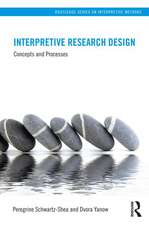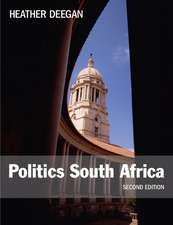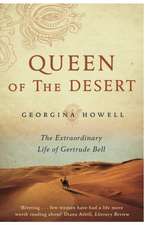Track Two Diplomacy and Jerusalem: The Jerusalem Old City Initiative: UCLA Center for Middle East Development (CMED)
Editat de Tom Najem, Michael Molloy, Michael Bell, John Bellen Limba Engleză Hardback – 14 feb 2017
‘Track Two Diplomacy and Jerusalem’ includes a series of studies that place JOCI within its historical setting and explain the theoretical context of Track Two diplomacy. The book then proceeds to present the Initiative's culminating documents, which outline in detail its proposed Special Regime governance model. Until now, the proposals have remained unpublished and available only to a limited audience of key stakeholders.
Presenting the information in an accessible format, this book will contribute positively to the wider conversation on Jerusalem, especially with respect to the longstanding conflict over control and governance of this holy city. It will therefore be of value to several audiences, from the policy-making community to the various traditions found in academia.
Din seria UCLA Center for Middle East Development (CMED)
-
 Preț: 392.87 lei
Preț: 392.87 lei -
 Preț: 305.84 lei
Preț: 305.84 lei -
 Preț: 433.90 lei
Preț: 433.90 lei -
 Preț: 488.71 lei
Preț: 488.71 lei -
 Preț: 416.26 lei
Preț: 416.26 lei - 15%
 Preț: 426.20 lei
Preț: 426.20 lei - 15%
 Preț: 698.17 lei
Preț: 698.17 lei -
 Preț: 489.26 lei
Preț: 489.26 lei -
 Preț: 443.78 lei
Preț: 443.78 lei -
 Preț: 413.33 lei
Preț: 413.33 lei -
 Preț: 430.94 lei
Preț: 430.94 lei -
 Preț: 418.13 lei
Preț: 418.13 lei - 13%
 Preț: 337.39 lei
Preț: 337.39 lei -
 Preț: 415.24 lei
Preț: 415.24 lei -
 Preț: 369.43 lei
Preț: 369.43 lei -
 Preț: 360.43 lei
Preț: 360.43 lei -
 Preț: 363.53 lei
Preț: 363.53 lei -
 Preț: 366.68 lei
Preț: 366.68 lei -
 Preț: 356.44 lei
Preț: 356.44 lei -
 Preț: 387.42 lei
Preț: 387.42 lei -
 Preț: 385.08 lei
Preț: 385.08 lei
Preț: 819.90 lei
Preț vechi: 1102.76 lei
-26% Nou
Puncte Express: 1230
Preț estimativ în valută:
156.89€ • 164.14$ • 130.33£
156.89€ • 164.14$ • 130.33£
Carte tipărită la comandă
Livrare economică 02-16 aprilie
Preluare comenzi: 021 569.72.76
Specificații
ISBN-13: 9781138666733
ISBN-10: 1138666734
Pagini: 324
Ilustrații: 30
Dimensiuni: 156 x 234 mm
Greutate: 0.45 kg
Ediția:1
Editura: Taylor & Francis
Colecția Routledge
Seria UCLA Center for Middle East Development (CMED)
Locul publicării:Oxford, United Kingdom
ISBN-10: 1138666734
Pagini: 324
Ilustrații: 30
Dimensiuni: 156 x 234 mm
Greutate: 0.45 kg
Ediția:1
Editura: Taylor & Francis
Colecția Routledge
Seria UCLA Center for Middle East Development (CMED)
Locul publicării:Oxford, United Kingdom
Public țintă
Postgraduate and UndergraduateCuprins
Introduction Part I: The Theoretical and Historical Background to the Jerusalem Old City Initiative (JOCI) 1. Track Two Diplomacy: A Theoretical Approach 2. The Jerusalem Old City Initiative: An Analytical History of the Product 3. The Jerusalem Old City Initiative: The Transfer Process 4. Negotiating Jerusalem: A Historical Account of the Impact of Track Two on Track One 5. Negotiating Jerusalem: Detailed Summary of Ideas Raised in Track Two Part II: JOCI Proposals to Resolve the Conflict over Jerusalem – The Special Regime Model 6. The Discussion Document 7. The Mandate 8. The Governance Document 9. The Security Document Epilogue Appendix: Chronology of the Jerusalem Old City Initiative
Notă biografică
Tom Najem is Project Manager of The Jerusalem Old City Initiative and Associate Professor in the Department of Political Science, University of Windsor, Canada
Michael Molloy is Co-Director of the Jerusalem Old City Initiative and Senior Fellow at the University of Ottawa’s Graduate School of Public and International Affairs, Canada
Michael Bell is Co-Director of the Jerusalem Old City Initiative, Adjunct Professor at the University of Windsor and Senior Fellow at the Norman Patterson School of International Affairs at Carleton University, Canada.
John Bell is Co-Director of the Jerusalem Old City Initiative and Director of the Middle East and Mediterranean Programme at the Toledo International Center for Peace, Spain
Michael Molloy is Co-Director of the Jerusalem Old City Initiative and Senior Fellow at the University of Ottawa’s Graduate School of Public and International Affairs, Canada
Michael Bell is Co-Director of the Jerusalem Old City Initiative, Adjunct Professor at the University of Windsor and Senior Fellow at the Norman Patterson School of International Affairs at Carleton University, Canada.
John Bell is Co-Director of the Jerusalem Old City Initiative and Director of the Middle East and Mediterranean Programme at the Toledo International Center for Peace, Spain
Descriere
‘Track Two Diplomacy and Jerusalem’ is the first in a series of three books which collectively present the work of the Jerusalem Old City Initiative, a major Track Two diplomatic effort undertaken between 2003 and 2014. JOCI’s raison d’être was to find sustainable governance solutions for the Old City of Jerusalem, arguably the most sensitive and intractable of the final status issues dividing Palestinians and Israelis.
The book includes a series of studies that place JOCI within its historical setting and explain the theoretical context of Track Two diplomacy. The book presents the Initiative's culminating documents, which outline in detail its proposed Special Regime governance model.
The book includes a series of studies that place JOCI within its historical setting and explain the theoretical context of Track Two diplomacy. The book presents the Initiative's culminating documents, which outline in detail its proposed Special Regime governance model.















